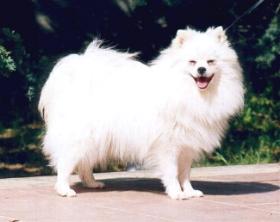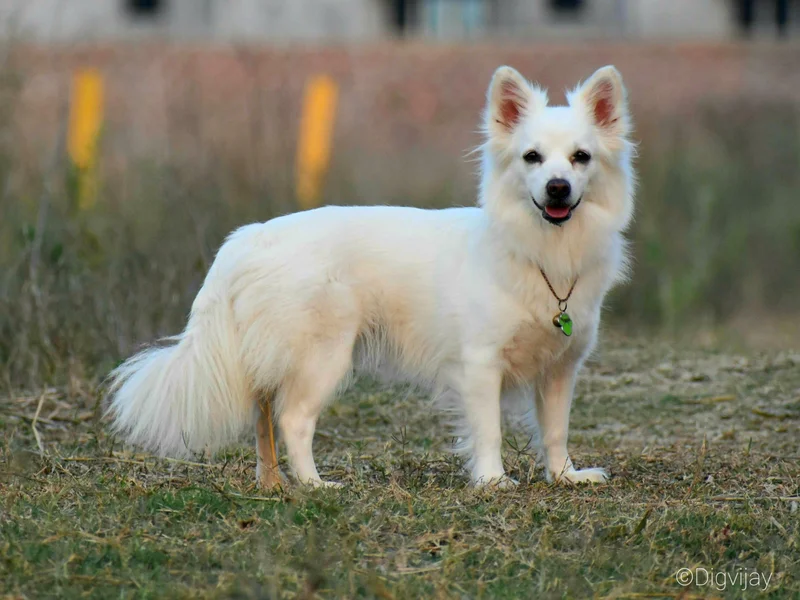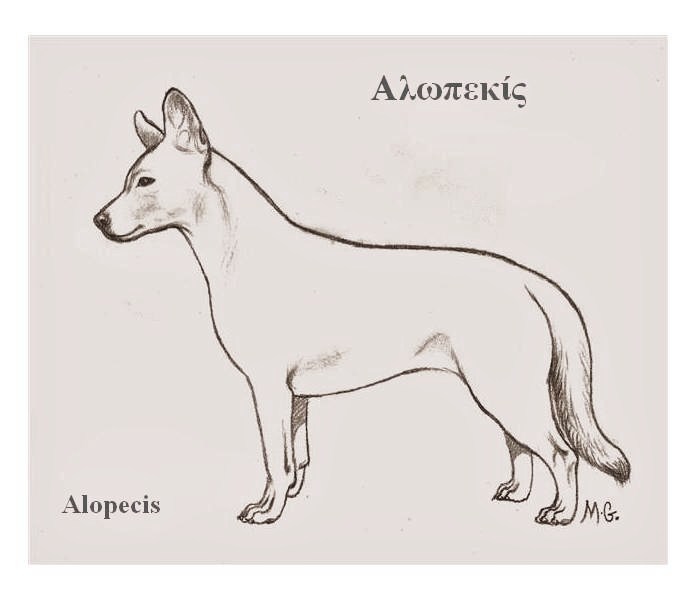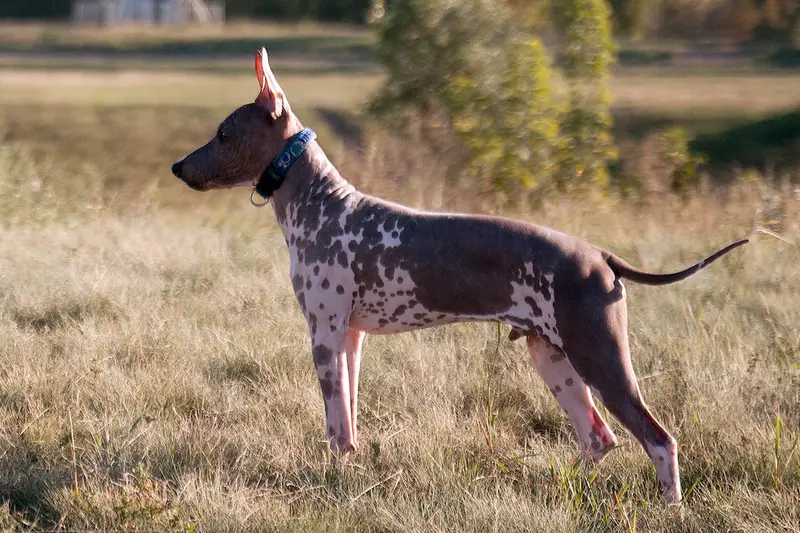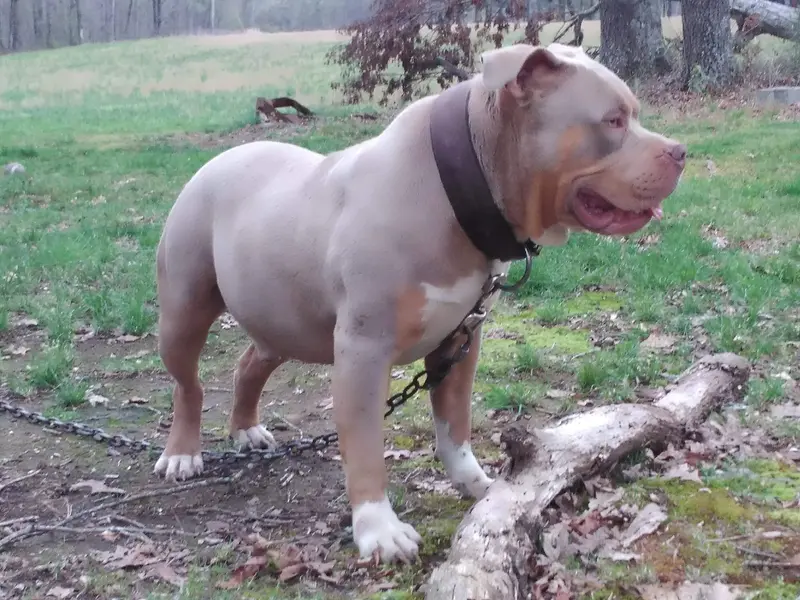Kokoni
Also known as: Daughter's Dog, House Dog, Kokona
The Kokoni is a small Greek domestic dog known for its affectionate nature, intelligence, and lively personality. Ideal for families, they are loyal companions with a rich history as beloved pets.
⚡At a glance
🏆Best traits
Key Facts
- Height
- 20-28 cm
- Weight
- 4-8 kg
- Life Span
- 15 - 18 years
- Group
- Companion
- Origin
- Greece
- Shedding
- Low
- Exercise
- 30 min/day
- Best For
- Apartments, Families, Active Owners, First-Time Owners
Overview
🐕Breed Overview
✨Key Traits
💡What Makes Kokoni Special
The Kokoni is characterized by its affectionate nature and strong attachment to its owners. They are highly perceptive and can sense their owner's emotions, often responding with comforting behaviors.
Their playful spirit and intelligence allow them to excel in training and interactive games. Kokonis are also known for their territorial instincts, making them effective watchdogs despite their small size.
Their expressive eyes and vocalizations add to their charm, allowing them to communicate effectively with their families. These traits make the Kokoni an ideal companion for families and individuals alike, providing both companionship and protection.
The Kokoni, a small Greek domestic dog, is a charming breed known for its affectionate nature and lively personality. With a history that dates back to ancient Greece, these dogs have been cherished companions for centuries, often depicted in art alongside women and children. The Kokoni is characterized by its medium size, typically weighing between 4 to 8 kilograms and standing around 28 centimeters tall.
Their coat is of high quality, easy to groom, and comes in various colors, including black and tan, blonde, cream, and white. This breed is particularly expressive, using their eyes and vocalizations to communicate with their owners, and they are known for their strong bonds with family members. Despite their small stature, Kokonis are fearless and territorial, making them excellent watchdogs.
They possess a lively spirit and enjoy engaging in activities such as fetching, agility training, and even swimming. Their intelligence and trainability make them suitable for various tasks, from hunting small game to serving as loyal companions. The Kokoni's gentle disposition and amiable nature allow them to coexist well with children and other pets, although early socialization is essential to manage their territorial instincts.
In terms of health, the Kokoni is a sturdy breed with good longevity, often living into their late teens. They are agile and capable of great speeds, making them active companions. Major health issues are unknown, but regular veterinary care is essential to maintain their well-being.
The Kokoni's unique blend of companionship, expressiveness, and working ability makes them a beloved choice for families seeking a loyal and engaging pet. Whether in urban settings or rural homes, the Kokoni thrives as a devoted family member, embodying the spirit of Greek culture and history.
🎉Fun Facts
Kokonis have a strong instinct for hunting small game, making them adept at catching birds and small animals.
The Kokoni is often referred to as 'the daughter's dog' in Greece due to its historical role as a companion for young girls.
They are known for their expressive eyes and ability to communicate their feelings through sighs and body language.
This breed is often depicted in ancient Greek art, showcasing its long-standing relationship with humans.
Breed Characteristics
Family & Friends
Good Behavior
Get Up & Go
Household Harmony
Temperament & Personality
🐕Core Temperament
The Kokoni has a gentle and even temperament, making them suitable for families and individuals alike. They are lively and cheerful, often displaying a playful attitude.
While they may be initially standoffish with strangers, they warm up quickly and are known for their affectionate nature. Kokonis are intelligent and eager to learn, making training a rewarding experience.
Their protective instincts can lead to territorial behavior, but with proper socialization, they can coexist peacefully with other pets and children. Overall, the Kokoni's temperament is characterized by loyalty, playfulness, and a strong desire for companionship.
💫Personality Profile
The Kokoni is a lively and affectionate breed, known for its strong bond with family members. They are generally friendly and sociable, although they may be initially cautious around strangers. Their intelligence and eagerness to please make them highly trainable, and they thrive on positive reinforcement.
Kokonis are playful and enjoy interactive games, making them great companions for children. Their territorial nature means they can be protective of their home and family, often alerting owners to any perceived threats. Despite their small size, they possess a strong bark and are not afraid to use it when necessary.
Overall, the Kokoni's cheerful disposition and loyalty make them a beloved family pet.
🔊Vocal Tendencies
The Kokoni has a moderate noise level, with a strong bark that can be surprising for their size. They are not excessive barkers but will alert their owners to any unusual sounds or intruders.
Their vocalizations can vary from barks to sighs, and they often use their eyes to express their feelings. While they may bark when excited or playing, they are generally quiet indoors.
Early training and socialization can help manage their barking tendencies, ensuring they are well-adjusted companions.
Affection & Social Traits
Big-hearted and highly social — here’s how it shows up day to day.
Energy & Activity
Moderate, steady energy — great for matching your routine.
Communication Style
Moderately talkative — a quick read on noise at home.
Care Requirements
🏃♂️Exercise Requirements
Daily Exercise
The Kokoni is a small but energetic breed that requires regular exercise to maintain its physical and mental well-being. Ideally, they should engage in at least 30 to 60 minutes of exercise each day. This can include brisk walks, playtime in a secure yard, or interactive games such as fetch or hide-and-seek.
Due to their small size, they can adapt well to apartment living, but they still need daily outings to expend their energy. Puppies may require shorter, more frequent play sessions, while senior dogs may benefit from gentler activities to accommodate their energy levels. Regular exercise not only helps prevent obesity but also reduces behavioral issues such as barking or destructive tendencies that can arise from boredom.
Overall, consistent physical activity is crucial for the Kokoni's happiness and health.
Preferred Activities
🏠Living & Adaptability
Space Requirements
The Kokoni is well-suited for various living environments, including apartments and homes with small or large yards. They thrive in urban settings due to their adaptability and smaller size.
However, they do require a safe outdoor space for daily exercise and play. Owners in smaller living situations should ensure they provide ample opportunities for walks and playtime to prevent boredom and anxiety.
The Kokoni's territorial nature means they may be more comfortable in a space where they can observe their surroundings, so a secure area for outdoor activities is beneficial.
Climate Preference
🍲Feeding Guide
Schedule
Food Types
Portion Size
Special Nutritional Needs
Kokonis do not have specific dietary restrictions, but it is essential to provide a balanced diet rich in protein and healthy fats to support their energy levels. Regularly monitoring their weight and adjusting portions accordingly will help prevent obesity, which can lead to health issues. Fresh water should always be available, and occasional treats can be given, but they should not exceed 10% of their daily caloric intake.
✨Grooming Requirements
Grooming Overview
The Kokoni has a coat that is easy to maintain, requiring regular brushing to remove loose hair and prevent matting. Depending on the coat length, brushing should be done at least once a week. Bathing should be done as needed, typically every few months or when they become dirty.
The coat is dense and weatherproof, so it holds up well against various conditions. Regular grooming also allows for checking the skin for any irritations or parasites. Nail trimming should be done every two weeks, and dental care is essential to prevent dental issues.
Overall, the Kokoni's grooming needs are manageable and can be incorporated into a regular care routine.
Care Schedule
Brush weekly, bathe as needed (every few months), trim nails every two weeks.
Health Profile
⚕️Health Care
Regular health care is crucial for the Kokoni's lifespan. Routine veterinary check-ups, vaccinations, and preventive treatments can help detect health issues early and maintain overall health.
Owners should also be vigilant about dental care and weight management, as these factors significantly impact the breed's longevity. By adhering to a consistent health care routine, owners can help their Kokoni live a long and healthy life.
Health Issues Overview
⏳Average Lifespan
Genetic Factors
Genetics play a significant role in the Kokoni's lifespan, with hereditary health issues being minimal. Selecting a reputable breeder who conducts health screenings can help ensure that potential owners acquire a healthy puppy. Genetic diversity within the breed contributes to its overall health and longevity, making it essential for breeders to prioritize genetic health in their breeding programs.
Living Conditions
The Kokoni's lifespan can be influenced by various environmental factors, including housing conditions, climate, and social interactions. Providing a safe and stimulating environment, along with regular exercise, can promote longevity.
A warm, comfortable home with access to outdoor space for play and exercise is ideal. Social interactions with family members and other pets can also enhance their emotional well-being, contributing to a longer, healthier life.
🏥Common Health Issues
Obesity
Warning Signs
🔬Diagnosis
Veterinary examination and weight assessment.
💊Treatment
Dietary adjustments and increased physical activity.
📝Management Tips
Maintain a balanced diet and regular exercise to prevent weight gain.
Dental issues
Warning Signs
🔬Diagnosis
Veterinary dental examination.
💊Treatment
Dental cleaning and possible extractions.
📝Management Tips
Regular dental care and professional cleanings.
🛡️Preventive Care
🔬Veterinary Health Check
A comprehensive health examination to assess overall health and detect any potential issues early.
📅 Annually for adults; bi-annually for seniors.
🔬Dental Examination
A dental examination to assess oral health and prevent dental diseases.
📅 Every 6-12 months, depending on dental health.
🔬Weight Check
A weight assessment to monitor for obesity and related health issues.
📅 Every 6 months.
Training
🧠Intelligence & Trainability
💪Work Drive
The Kokoni has a moderate work drive, stemming from its historical role as a hunter and companion. They enjoy tasks that engage their minds and bodies, such as agility training, scent work, or interactive games that challenge their problem-solving abilities.
Providing mental stimulation through puzzle toys or training exercises is essential for their well-being. Without adequate mental and physical engagement, Kokonis may exhibit behavioral issues, such as excessive barking or destructive tendencies.
Owners should aim to incorporate a variety of activities into their routine to keep their Kokoni fulfilled.
⚠️Training Considerations
While the Kokoni is generally easy to train due to its intelligence and eagerness to please, some common challenges may arise. Their territorial nature can lead to possessiveness over their owners and space, which may manifest as barking or aggressive behavior towards strangers or other animals.
To overcome these challenges, early socialization is crucial. Exposing the Kokoni to various environments, people, and other pets from a young age can help mitigate territorial tendencies.
Positive reinforcement training methods, such as treats and praise, can also encourage desired behaviors and reduce any inclination towards aggression or excessive barking.
📝Training Tips
Training a Kokoni can be a rewarding experience, as they are intelligent and responsive to commands. Consistency is key; using clear commands and rewarding good behavior with treats or praise will reinforce learning.
Short, engaging training sessions are ideal, as Kokonis can become bored with lengthy practices. Incorporating play into training, such as using toys or games, can keep them motivated.
Additionally, teaching them basic commands like 'sit,' 'stay,' and 'come' will enhance their obedience and strengthen the bond between owner and dog. Regular training will also help manage their territorial instincts and ensure they are well-adjusted companions.
History & Heritage
📜Origin Story
' This etymology reflects the breed's historical role as a companion for young girls and women, who often spent their time at home. The Kokoni was bred to be a small, affectionate dog that could thrive in domestic settings, contrasting with larger hunting or guardian breeds.
Throughout history, the Kokoni has been depicted in various forms of Greek art, showcasing its long-standing relationship with humans. As urbanization increased in Greece, the Kokoni became a popular choice for city dwellers, adapting well to apartment living while still retaining its hunting instincts.
Today, the Kokoni is celebrated for its unique blend of companionship and working ability, making it a cherished member of many households.
⏳Development History
The Kokoni's history is deeply intertwined with Greek culture, dating back to ancient times. Initially bred as a companion dog, the Kokoni was favored for its small size and affectionate temperament, making it an ideal pet for families.
Over the years, the breed has retained its working abilities, particularly in hunting small game and serving as an alarm dog. The Kokoni's physical characteristics have evolved to suit its role as a household companion, with a focus on temperament and expressiveness rather than strict breed standards.
Despite not being recognized by major kennel clubs, the Kokoni remains a beloved breed in Greece, celebrated for its loyalty and companionship.
🛡️Purpose & Historical Role
Historically, the Kokoni served as a companion dog, providing emotional support and companionship to families, particularly women and children. Its small size made it suitable for urban living, while its hunting instincts allowed it to assist in catching small game and birds.
The breed's territorial nature also made it an effective alarm dog, alerting owners to potential intruders. In modern times, the Kokoni continues to fulfill these roles, thriving as a family pet and maintaining its historical significance as a loyal companion.
🏺Cultural Significance
The Kokoni holds a special place in Greek culture as a beloved companion dog, often depicted in ancient art alongside women and children. This breed has been a part of Greek households for centuries, symbolizing loyalty and companionship. Their presence in historical artifacts highlights their importance in domestic life, serving not only as pets but also as protectors and hunters of small game. The Kokoni's affectionate nature and expressive behavior make them a cherished member of many Greek families, reinforcing their cultural significance as 'the daughter's dog' or 'the dog for the house.'
Conservation Status
The breed exists today and isn’t classified as extinct.
Often found in multiple regions; easier to encounter.
This breed is well-established with healthy population numbers.
?Frequently Asked Questions
Is the Kokoni good for apartment living?
Yes, the Kokoni generally does well in apartments. They adapt comfortably to smaller spaces and can thrive with regular walks and indoor play. Their temperament and energy level make them a good fit for apartment living, though they still need daily exercise.
How much does a Kokoni shed?
The Kokoni sheds minimally compared to many other breeds. While no dog is truly hypoallergenic, this breed produces less loose hair than average. Routine brushing will help manage the little shedding they do.
Are Kokonis easy to train?
Yes, the Kokoni is quite easy to train and generally eager to please their owners. They respond well to positive reinforcement and can pick up new commands relatively quickly. This makes them a good choice for both experienced and first-time dog owners.
How long do Kokonis live?
The average lifespan of a Kokoni is 15 - 18 years. Lifespan can be influenced by genetics, diet, exercise, and overall health care. Regular veterinary check-ups and a healthy lifestyle can help your Kokoni live a long and happy life.
Is the Kokoni good with kids?
Absolutely! The Kokoni is exceptionally good with children and makes a wonderful family companion. They are patient, gentle, and often form strong bonds with the younger members of the family. Their tolerant nature and playful spirit make them a top choice for households with kids.
How much exercise does a Kokoni need?
The Kokoni is a high-energy breed that needs approximately 30 minutes of exercise daily. They thrive with vigorous activities such as running, hiking, or interactive games. Without adequate exercise, they may develop behavioral issues from pent-up energy.
Is the Kokoni good with other pets?
Yes, the Kokoni generally does well with other pets. Their friendly and adaptable nature helps them coexist peacefully in multi-pet households. Early socialization helps ensure the best relationships with other animals.


